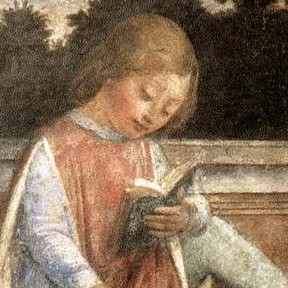Are ROMANs Elite?
 John at SF Signal reviewed my free ebook ROMAN Reading in post called When in Rome…Do as Elitists Do? I really appreciate the time he took to read the book and write about it. His comments actually illustrate a couple of the elements of ROMAN Reading: Asking questions about what you read, and Naming your experiences.
John at SF Signal reviewed my free ebook ROMAN Reading in post called When in Rome…Do as Elitists Do? I really appreciate the time he took to read the book and write about it. His comments actually illustrate a couple of the elements of ROMAN Reading: Asking questions about what you read, and Naming your experiences.
One of the questions he asks is if the neighborhood analogy is elitist. Here are his thoughts:
Encouraging reading is a good thing, but I detect a smack of reading elitism here, particularly in this passage:
Books are like neighbors, and your personal library is your neighborhood. Take a look at your bookshelves. What kind of neighborhood are you living in? Are you in a slum or in the suburbs? Who are your neighbors? Are they trash talkers or shrewd sages? If you live next door to Socrates, then invite him to dinner every night. If you live next to Dan Brown, then put your house on the market.
He goes on to say:
I sometimes hear people speak as if (or say outright that) reading is not a worthwhile activity unless you are reading Literature with a capital L. Enter self-doubt. Am I wasting my time by reading anything else? Am I denying myself the true value of reading? Am I becoming a literary snob? Is this self-doubt the beginning of a midlife crisis?
What great questions! I began to leave John a comment, but it kept getting longer and longer, so I thought I’d respond here. Again, I’d like to thank John for mentioning the book and linking to it.
First let me say that I have “lowbrow” tastes in books, too–my favorites span a wide range: on the “lower” end I have such favorites as pulp hero Doc Savage, the Stainless Steel Rat series by Harry Harrison, the Conan series, and any short story collection with Alfred Hitchcock in the title.
Reading for fun is as necessary as taking the weekend off from work, or going on an extended vacation every once in a while. Not every book is meant to educate or inspire. What I was trying to say with the neighborhood analogy (while poking a little fun at Dan Brown), is that behind every book is a real person. Books have as much power to influence us as the friends we hang around.
Each person must choose their own friends, but if I see my teenage son constantly getting into trouble because of the influence of his friends, I will try and point that out to him. In the same way, books can have a positive or negative effect on us, and I was trying to remind my readers of that. I’d like to insert one of my favorite quotes here. It’s by Father John Hardon, and you can find it on every page of this blog:
“Everything we read stimulates our mind to think, and what we think determines what we desire, and desires are the seedbed of our actions. Given this iron law of human nature–from reading to thinking, to desiring, to acting–we are shaping our destiny by the ideas we choose to have enter our minds through print.”
Are there some books that I think everyone should read? Yes, I must admit that I believe there are. Not necessarily because they are “better” than others, but because they have so much to offer everyone. Think of it this way: Aren’t there some people who are just so inspirational and intelligent (and even holy) that everyone would benefit from meeting them? Mother Teresa comes to mind. Well, I can’t meet Mother Teresa in person anymore because she has passed on, but I can read what she left behind and get to know her through her books. She is someone I think everyone would have benefited from meeting.
There’s also some faulty logic that people can slip into when talking about books. I’m guilty of it myself at times. I occasionally fall into the trap of putting books into two categories: (1) fun books, and (2) literature. The mistake is thinking that these two categories are mutually exclusive. What has happened to me as I’ve expanded my reading is that the books I used to think of as “fun” (like Conan, for instance) have actually become a bit boring and not as entertaining as they used to be. What I find now is that literature is more fun and entertaining to me, and much of the enjoyment comes from wrestling with the author’s ideas.
If you “wrestled” with my ideas in ROMAN Reading, I hope it gave you some enjoyment. I’m sorry if it seemed elitist, and I hope this post has clarified things a bit. Thanks again, John, for your challenging remarks and for linking to Literary Compass.































